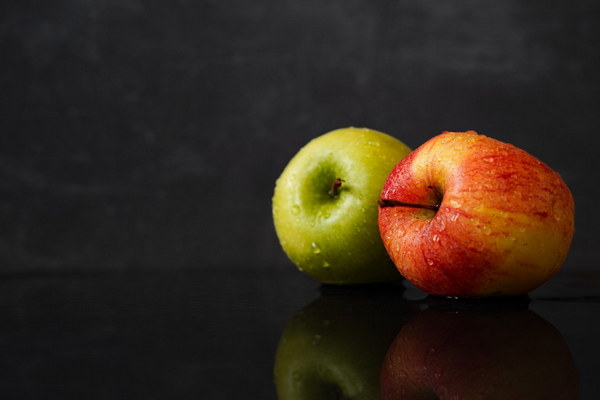Balancing Yin and Yang A Comprehensive Guide to Body Regulation
In traditional Chinese medicine, the concept of Yin and Yang plays a vital role in understanding and maintaining health. The balance between Yin (cool, slow, and passive) and Yang (hot, active, and dynamic) is crucial for the overall well-being of the body. This article aims to provide an in-depth understanding of Yin and Yang and how to regulate them for a healthier life.
Understanding Yin and Yang
Yin and Yang are complementary forces that are present in all things and are constantly changing. In the human body, Yin and Yang represent the two opposite but interconnected aspects of our physiology and psychology. For example, Yin corresponds to the body's internal organs, while Yang is associated with the external environment and the body's external functions.
Signs of Yin and Yang Imbalance
An imbalance in Yin and Yang can lead to various health issues. Here are some common signs of Yin and Yang imbalance:
- Yin Deficiency: Excessive heat, night sweats, irritability, dry skin, and hair, fatigue, and low libido.
- Yang Deficiency: Weakness, cold limbs, fatigue, low energy, and a tendency to catch colds and flu.
- Yin Excess: Excessive cold, weight gain, water retention, and sinus congestion.
- Yang Excess: Excessive heat, irritability, redness, and inflammation.
Regulating Yin and Yang
To maintain a healthy balance between Yin and Yang, it is essential to adopt a holistic approach that includes diet, lifestyle, and mind-body practices. Here are some tips to help you regulate Yin and Yang:
1. Diet: Adjust your diet to include foods that nourish your Yin and Yang. For example, cooling foods like cucumber, watermelon, and soy products are beneficial for Yin, while warming foods like ginger, garlic, and black pepper can help boost Yang. Incorporate a variety of vegetables, fruits, grains, and lean proteins to ensure you get a balanced intake of nutrients.

2. Exercise: Regular physical activity is essential for balancing Yin and Yang. Gentle exercises like tai chi, yoga, and walking help to harmonize the body's energy. In contrast, vigorous exercises like running and weightlifting can increase Yang energy.
3. Meditation and Mindfulness: Mindfulness practices, such as meditation, help to calm the mind and reduce stress. This, in turn, helps to maintain the balance between Yin and Yang. Mindfulness can be cultivated through daily practices like deep breathing, mindfulness meditation, and being present in the moment.
4. Acupuncture and Herbs: Traditional Chinese medicine practices like acupuncture and herbal remedies can help regulate Yin and Yang. Acupuncture needles are inserted at specific points on the body to unblock energy pathways and restore balance. Herbs are used to nourish and strengthen the body's Yin and Yang.
5. Adequate Sleep: Sleep is essential for balancing Yin and Yang. Make sure you get enough restful sleep each night to allow your body to recharge and restore its energy.
6. Stress Management: Chronic stress can disrupt the balance of Yin and Yang. Find healthy ways to manage stress, such as spending time in nature, engaging in hobbies, and seeking support from friends and family.
Conclusion
Balancing Yin and Yang is a crucial aspect of maintaining overall health and well-being. By understanding the principles of Yin and Yang and incorporating practices that promote their balance, you can improve your quality of life and reduce the risk of various health issues. Remember, achieving a healthy balance between Yin and Yang is a continuous process that requires attention and commitment.









